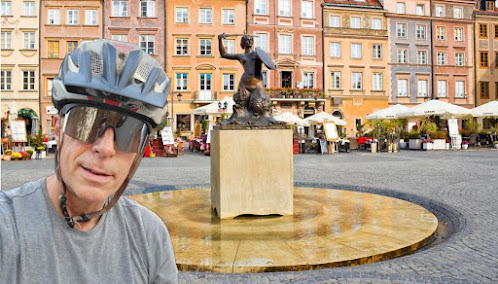Page Pelphrey offers her reflections from Christ Church in Connecticut and her perspective as both a teacher of languages and a mother.
Her meditations are framed with comments about Forward Day by Day itself. Her grandmother gave copies to loved ones, and Pelphrey was reading it years before she got the gig to write it. She admits that she hasn't told anyone that she's writing for the publication, in case it somehow doesn't work out. That's her usual approach to good news, but Isaiah 58 tells us to "Shout out! Do not hold back!"
Pelphrey positions scripture and her life within a broader social context. For her, Isaiah's metaphor for Israel as a ruined vineyard resonates with her own small community ripped apart by partisan politics. She has changed her registration to "independent" as a proclamation that she will not trust her "tribe" more than the Lord.
She guesses that we all see ourselves as the poor widow in the parable, but admits that others see her as rich: "I need to focus on my life, not on the person in the pew next to me."
The peeved reaction of Jesus to the fig tree that bore no fruit is one of many stories of Bible heroes "losing it." They allow us to "forgive ourselves" for our own human frailty.
By the end of her series, she tells us how preparing to write her reflections for Forward has helped her to see all of life "through the lens of Scripture and [our] Baptismal Covenant." She challenges us to write our own. [I can attest to the power of writing reflections. Our parish produced devotion books for years, and the ones I wrote stay with me. See links to them at my page Theology for Breakfast.]
Episcopal priest Rob Gieselman at St. Stephen's in Belvedere CA is father of two grown children, a gardener, hiker, and dog-walker. He studied law and economics.
He lets us see his shadow side: formerly evangelical, he struggled with self-loathing, self-righteousness, his need for definite answers, the hard time he has admitting he's wrong. So he's also sensitive to some ways we fool ourselves. For instance, he admits to "a propensity to obfuscate, to hide like Adam in the Garden." He confesses to us that his confessions to God can become exercises in self-abasement when they should be about being honest and honoring God's word in himself.
We can imagine late nights during his evangelical phase when he tried to straighten what he calls a "tangled knot" in our faith: "You cannot earn grace, as it is a gift, yet failure to exercise your faith diminishes grace." He notes that Jesus doesn't ask the crippled man at the pool, "Have you tried hard enough?" but "Do you want to be made well?"
For those who think faith depends on definite answers, Gieselman offers a couple of homely alternatives. Gieselman's daughter was "not a hugger," but she would lean into him. Faith is "leaning into" God, not some certain things we think or do. As Gieselman's dogs bound from side to side in the eddies of a stream, Jesus doesn't speak in straight lines, either, but in eddies of meaning.
Having struggled with ego in his faith, Gieselman offers an effective switch: Imagine how God experiences us. Anticipating the movie Everything Everywhere All At Once, Gieselman imagines the Holy Spirit being able to pass through time and alternate universes as easily as wind passes through a screen. That's why the Spirit bypassed David's big brothers for a boy with potential that no one else saw. Gieselman asks us to imagine seeing others as God sees them.
Priest and poet Kim Becker, Cherokee and self-confessed "word nerd," has helped me out with a poem. All April long, I've been struggling to complete a poem about words, how they're insufficient to convey the depth and breadth of God. Words, I've been thinking, are like threads of a net straining to contain fish trawled from just one corner of a vast sea. Near the end of the month, Becker meditated on a word from Jesus from Luke 5.4, "Put out into the deep water." She writes:
I love the ocean, but I have a fear of deep water -- and of whatever might live in that deep water! I prefer watching the waves to being in them.... [W]hen it comes to my relationship with God, I have often stayed in the shallows. It is easy to go it by rote, without allowing myself to enter more fully into the vulnerability of a life of faith... secure in the one who is ruddering our ship.
Becker recommends others' works in some of her writings. I like the title Everything Happens for a Reason and Other Lies I've Loved by Kate Bowler. She has reminded me of a book encountered early in my adulthood, forgotten till now, that has influenced me ever since, Morton Kelsey's Dreams: A Way to Listen to God. Then, she cites a translation unfamiliar to me from Psalm 5.1, "Lord, give heed to my sighing." A sigh speaks without words, she says, and we should listen to the sighs of others -- including those of creatures with more than two legs.
[For many, many more reflections on tradition, experiences, and beliefs of the Episcopal Church, see my page Those Crazy Episcopalians.]









